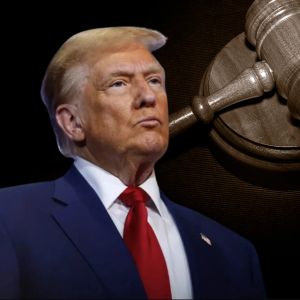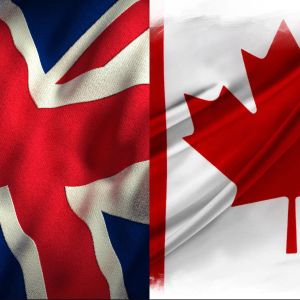The US Court of Appeals in Washington D.C. extended the pause on a lower court decision that nullified Trump’s Liberation Day tariffs and levies on Chinese goods. The appeals court ruled on Tuesday that it needed to reexamine the other court’s decision on whether Trump overstepped his authority. Until that review is complete, Trump’s reciprocal tariffs on major US trade partners and duties targeting Canada, China, and Mexico remain in effect. The appeals court called for an expedited resolution of the tariff cases In April, a group of small businesses and around a dozen states sued the Trump Administration in the US Court of International Trade, questioning the legality of his reciprocal tariffs. Consequently, on May 28, the trade court sided with the plaintiffs and said Trump had gone beyond his authority and overstepped with the Emergency Powers Act . The court ruled that the White House had to end its tariffs, including its separate levies on China and separate tariffs on Canada and Mexico. However, the Trump administration quickly appealed the ruling, and the next day, the Federal Circuit in Washington paused the lower court’s decision and reviewed whether to extend the halt. On Tuesday, the appeals court ruled that the tariffs could remain in effect while the appeals play out. However, it placed the tariff cases on an expedited schedule for a summer resolution, claiming the cases are of “exceptional importance.” On the court’s decision, Ilya Somin, a law professor at Scalia Law School, George Mason University and plaintiff lawyer, commented, “All I can say is the court’s decision is unfortunate. The Federal Circuit also indicated in its ruling today that there will be expedited consideration of the case, and we hope to get a ruling on the merits faster than usual.” Jeffrey Schwab, a senior counsel at the Liberty Justice Center, also expressed his disappointment in the court’s decision. However, he is confident the court will eventually rule against the tariffs. On the other hand, the White House termed the ruling “a welcome development,” maintaining that Trump’s actions were within the legal authority provided by the Constitution and Congress to address persistent trade deficits and drug trafficking. Before the court’s ruling, the administration cautioned that failing to grant a more comprehensive stay could disrupt its negotiations with China and other nations. Trump is the first president to use the IEEPA law to impose tariffs. While the Trump administration secured a temporary victory with the appeals court ruling, they still have to convince the judges that the president lawfully invoked emergency powers under the 1977 International Emergency Economic Powers Act (IEEPA). Past presidents have used the act to sanction hostile nations or freeze their assets — Trump is the first to use it for tariffs. He insists that the February levies on Canada, China, and Mexico were meant to deter fentanyl trafficking at US borders, while the additional tariffs introduced in April targeted broader concerns over the nation’s persistent trade deficit. States and small businesses, however, think the contrary, claiming that tariffs were neither a legal nor appropriate way of dealing with those issues. Small businesses particularly argued that the country’s trade imbalance —importing more goods than it exports—does not necessitate a national emergency under the criteria set by the IEEPA. The Trump administration is showing no signs of backing down from the legal fight, hinting that it would go as far as the Supreme Court. Meanwhile, the appeals court ruling does not affect the broader sector-specific tariffs previously imposed by Trump, such as those on aluminum, steel, automobiles, and auto parts. Trump imposed those duties under Section 232 of the Trade Expansion Act, a provision that allows presidents to act when national security is at stake. It’s one option the administration still has at its disposal, no matter how the court case ends. JPMorgan projects that if no further import duties are imposed and the IEEPA-based tariffs are eliminated, the nation’s effective tariff rate on goods would drop to around 5%, roughly twice the level in 2024. Your crypto news deserves attention - KEY Difference Wire puts you on 250+ top sites


















